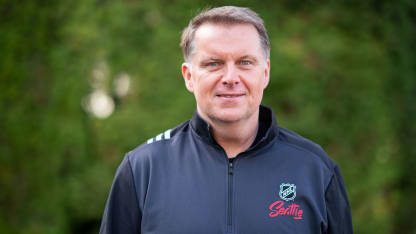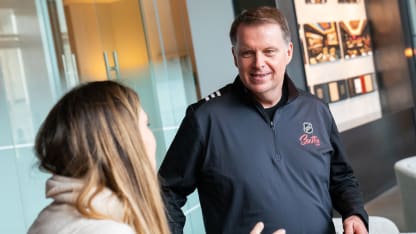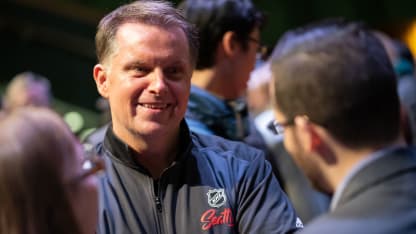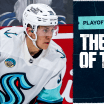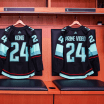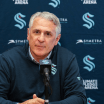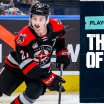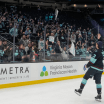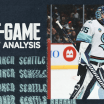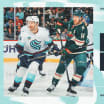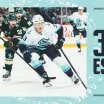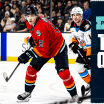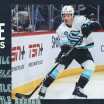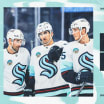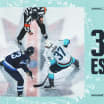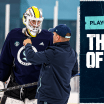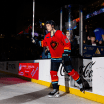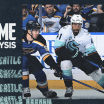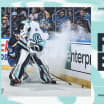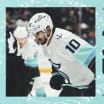Next on game days is where life as a pro scout for Seattle's NHL expansion franchise takes a distinctly longer view for Hunter, his fellow scouts and bosses, general manager Ron Francis and assistant GM Ricky Olczyk--all scouting games several nights most weeks.
"I am typically watching players we might possibly pick in the expansion draft [in June 2021]," says Hunter. "Once the first period starts, with my notebook, of course, I watch those [five or six] players' shifts, concentrating on hockey sense, skating ability, what offensive skills do they have, what defensive skills, if they have any lapses in their game."
Hunter's workload is about 75 percent NHL games, concentrating on the league's Eastern Conference. The other 25 percent is scouting home games of Boston's AHL affiliate Providence Bruins, about an hour's drive for Hunter. He was part of a scouting staff that helped Francis and Olczyk draft and acquire the core of players that fueled Carolina's run to the Eastern Conference last spring, achieving the NHL's version of the Final Four. Eighty percent of Carolina's playoff goals were scored by players Francis brought into the organization, plus a similar percentage of goals were tallied by players Francis acquired for the team's AHL affiliate Charlotte Checkers, which won the AHL title last spring.
Growing up and playing Junior B hockey in St. Catherine's, Ont., Hunter played four seasons of collegiate hockey for Cornell University. Hunter and Francis first met through a mutual friend, Mark Canduro, who was Hunter's hockey teammate and best friend at Cornell. Francis was offered the opportunity to play for Cornell during the same time frame, but opted for his hometown juniors team in Sault St. Marie, Ont., which resulted in the Seattle GM to get called up to the NHL's Hartford Whalers as an 18-year-old. Canduro played 16U hockey with Francis in Sault St. Marie. The three friends and their families remain close.
